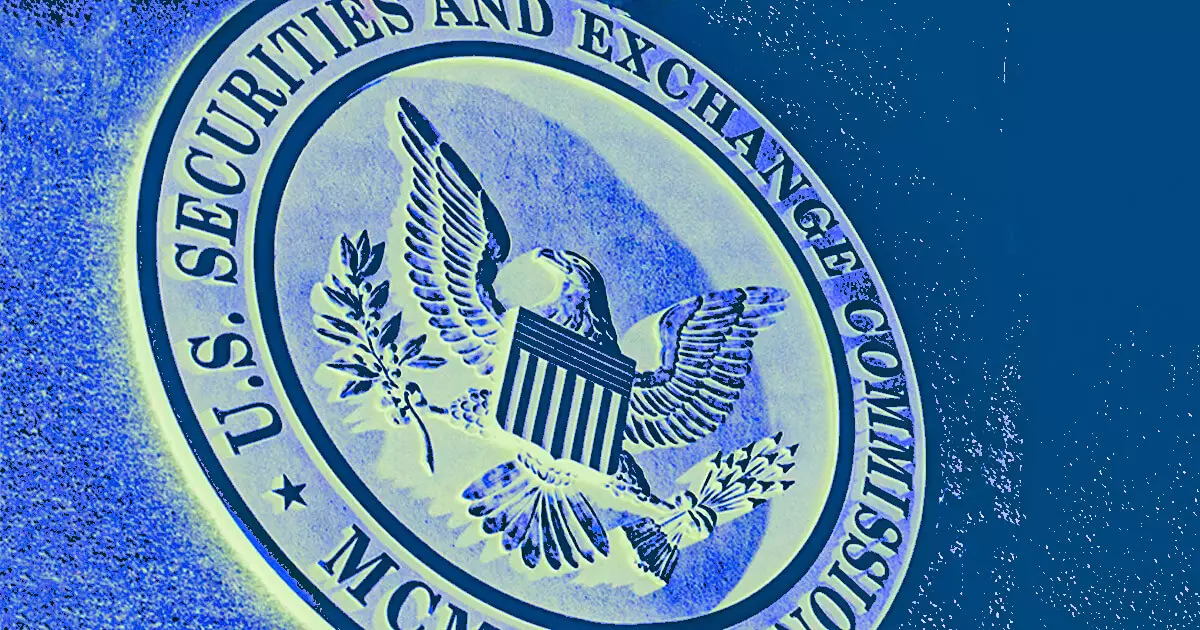The regulatory landscape surrounding non-fungible tokens (NFTs) has become increasingly contentious, particularly following the U.S. Securities and Exchange Commission’s (SEC) enforcement actions against entities involved in the NFT space. The SEC’s recent scrutiny of the Flyfish Club, a dining establishment that sold NFTs as exclusive access tokens, serves as a focal point for the ongoing debate regarding whether such tokens should be classified as securities under existing laws. This incident raises pressing questions about regulatory clarity and the future of digital assets.
The Flyfish Club launched an NFT collection selling approximately 3,000 digital tokens, priced between $8,400 for standard access and $14,300 for premium entry through Omakase dining experiences. The initiative successfully raised $14.8 million and accrued an additional $2.7 million from secondary market sales. However, the SEC’s response was swift and severe, resulting in charges alleging an unregistered offering of securities. The resolution included a $750,000 civil penalty and a cease-and-desist order, highlighting the regulator’s commitment to enforcing compliance within emerging markets.
Commissioners Hester M. Peirce and Mark T. Uyeda have publicly dissented against the SEC’s enforcement actions, asserting that the NFTs in question should not fall under the classification of securities. Their arguments present a compelling counter-narrative, claiming that the NFTs function as utility tokens, intended to offer holders tangible benefits like unique dining experiences rather than investment opportunities. The commissioners specifically criticized the application of the Howey Test—a legal framework used to determine if an asset qualifies as a security—as unsuitable for Flyfish’s NFTs. Their position underscores a necessary dialogue regarding the appropriate regulatory framework for utility tokens in a rapidly evolving digital marketplace.
The dissenting opinions shed light on a broader concern regarding the potential ramifications of overzealous regulation. Peirce and Uyeda warned that applying traditional securities laws to novel digital assets could stifle innovation and experimentation within the NFT realm. Their call for regulatory clarity resonates within the industry, emphasizing the need for guidance from the SEC that differentiates between securities and utility tokens. By fostering an environment that allows creative experimentation—free from the fear of punitive actions—regulators could facilitate the growth of the digital economy.
Industry Pushback and Artistic Support
The fallout from the SEC’s actions has prompted a robust response from industry stakeholders, exemplified by OpenSea and the Coinbase-backed Stand With Crypto Alliance. OpenSea received a Wells Notice from the SEC, warning of potential enforcement due to alleged securities offerings. In light of this, OpenSea’s CEO Devin Finzer became a vocal advocate for creators, asserting that regulatory scrutiny negatively impacts artists and creators striving to navigate the NFT landscape. The creation of the $6 million Creator Defense Fund reflects a collective commitment among industry participants to protect and support artists amidst uncertain regulatory conditions.
As the ongoing debate over NFT regulation continues, the need for clear and sensible guidelines becomes increasingly urgent. Establishing a balanced regulatory framework that encourages innovation while protecting consumers is fundamental for the future of the NFT market. The dissenting voices within the SEC, alongside the industry’s resilient pushback, signal a pivotal moment in the dialogue surrounding digital assets, reminding all stakeholders of the importance of trust, transparency, and creativity in shaping the future of this burgeoning sector.


Leave a Reply